
Ricardo Ortiz, an English and American Studies professor who taught at Georgetown University for more than 25 years and expanded the humanities, Latine and queer studies departments, died Aug. 18 in Washington, D.C. He was 63.
Ortiz began teaching at Georgetown in 1998 and served as the chair of the English department from 2015 to 2021 and most recent director of the Master of Arts Program in Engaged and Public Humanities beginning in 2022. He is remembered throughout Georgetown as an advocate for marginalized communities, a dedicated and kind friend and a champion of expanding the humanities.
Faculty and students characterized Ortiz as a funny and joyful person who prioritized his students above all else and inspired every part of Georgetown.
Paul O’Neill, Ortiz’s partner of four years to whom he was engaged, attributed Ortiz’s love for education to the transformative power reading and writing had on his life. He said Ortiz’s upbringing in Los Angeles as an immigrant in a working class family who learned English as his second language influenced his teaching.
“Something to remember about Ricardo was that he was never more himself than when he was in the classroom teaching students,” O’Neill told The Hoya. “And the reason that mattered so much to him was that he saw in students his 18-year-old self, and he wanted them to experience the flourishing that he experienced as an undergraduate.”
“He was also especially attentive to those kids who didn’t come into the classroom with an advantage — kids who were immigrants, kids of color and kids who were queer — and he wanted to make sure that their experience in his classroom was an equalizing experience,” O’Neill added.
O’Neill said Ortiz’s cause of death was a heart attack.
An Advocate for Underrepresented Communities
Born Sept. 23, 1961, in Cuba, Ortiz moved to Los Angeles with his parents in 1966 before receiving his undergraduate degree in English and economics from Stanford University in 1983. He then earned a master’s and doctoral degree in English from the University of California, Los Angeles (UCLA) in 1987 and 1992, respectively. He taught at San Jose State University and Dartmouth College before joining Georgetown’s faculty.
Many of Ortiz’s former students and colleagues emphasized the important role he played in shaping their careers and academic paths, which they say is a testament to Ortiz’s dedication to his students.
Josh Javier Guzmán (SFS ’10) — who Ortiz taught in the English department and Community Scholars Program (CSP), an academic program for first generation and low-income students — is now an associate professor of gender studies at UCLA. Guzmán said Ortiz was instrumental in shaping his career.
“Because of him and his classes and his mentorship, I started reading more critical theory, and that’s sort of what spurred my interest in academia, largely, and becoming a professor,” Guzmán told The Hoya. “He’s probably the main reason why I chose this route — because he showed me that I could read and write and research as a way of living.”
An ally for students from disadvantaged backgrounds, Ortiz frequently taught in the CSP. He was a faculty sponsor of many programs serving underrepresented students, including the Georgetown Scholarship Program, the Black House Diversity Initiative, the LGBTQ Resource Center, La Casa Latina, MEChA de Georgetown, the Center for Multicultural Equity and Access (CMEA), the Kalmanovitz Initiative for Labor and the Working Poor, the Patrick Healy Fellows, the Provost’s Diversity Action Council and the Center for Social Justice.
Sivagami Subbaraman, the former and inaugural director of the LGBTQ Resource Center and close friend of Ortiz’s and O’Neill’s, said Ortiz’s care for these programs was essential in shaping a campus culture that addressed its communities’ needs.
“I think of him as somebody who could go where the silences are,” Subbaraman told The Hoya. “He was not afraid to go where the silences are, whether the silences were on campus around issues of equity, diversity, around issues of inclusivity, whether it was the faculty staff divide, whether it was students and Latinx issues.”
Ortiz was influential in Georgetown’s 2007 Out for Change campaign, a movement advocating for better treatment of the LGBTQ+ community on campus that resulted in the university establishing the LGBTQ Resource Center in 2008 — the first Catholic university in the United States to do so. At the time, Ortiz was among the first few openly gay faculty members at Georgetown.
Patrick O’Malley, the chair of the English department who worked closely with Ortiz, said Ortiz’s love for his students is what characterizes him best.
“He loved his students,” O’Malley told The Hoya.
“He went to celebrate with them at their various successes, not because he was obligated to, but because he wanted to, because he got tremendous joy in being there with his students,” O’Malley added.
This was particularly true for Clara Mejía Orta (CAS ’17), one of Ortiz’s students in the CSP, who fondly remembers Ortiz briefly pausing her graduation ceremony procession to hug her and tell her he was proud of her. Mejía Orta, who is currently pursuing a doctorate in history at Yale University, said his presence guided her through Georgetown and led her to apply for graduate school.
“Profe Ricardo made us feel seen, he made us feel heard, but most importantly he made us understand that graduating from Georgetown was not the end but the beginning of our stories,” Mejía Orta wrote to The Hoya. “For me as a Latina it meant something to see and work with a Latinx Professor, he showed me that I could too and put me on the path of writing and researching Latinx communities to tell our stories.”
A Pioneer in the Humanities
Ortiz was instrumental in bringing Latine and queer studies to Georgetown and expanding humanities departments, particularly interdisciplinary programs.
Brian Hochman, the director of the American Studies department, said Ortiz’s greatest legacy is his role in institutionalizing these programs in academia.
“I think these are fields that we now take for granted as part of a Georgetown education,” Hochman told The Hoya. “When he came to campus, they were still very much marginal, and he spent a lot of time and a lot of energy making those fields more visible, fighting for it, and also fighting for students who wanted to learn about those subjects.”
Ortiz published two books in Latine studies and over 40 other academic works in the humanities. He was working on a book about Cuban Paris when he died.
Soyica Diggs Colbert, interim university provost, said Ortiz was an important member of the university community.
“Professor Ortiz was a beloved teacher and tireless supporter of the humanities and of Georgetown,” Diggs Colbert wrote in an email to the university community.
Bassam Sidiki (CAS ’16), another of Ortiz’s students, said Ortiz’s influence on the humanities will have long-lasting impacts.
“I think Professor Ortiz will always be remembered as a champion of the humanities,” Sidiki told The Hoya. “He was passionate, not just in the classroom. He was a dynamic teacher — you would be mesmerized if you’re sitting in the classroom and he’s lecturing.”
Nicoletta Pireddu, the director of the Georgetown Humanities Initiative who first met Ortiz at UCLA, said she found a particular kinship in their shared commitment to developing the humanities and expanding opportunities for students.
“I think it was a kind of twin soul that I saw in him,” Pireddu told The Hoya.
“I can tell that out of 30 emails that I would find early in the morning when I was ready to start my day, Ricardo’s messages were always the first ones I would click on, no matter what the content was,” Pireddu added.
Pireddu and Ortiz were working on ways to create collaborations between her program in the undergraduate school and Ortiz’s master’s program in Engaged and Public Humanities before he died. She said she hopes to find a way to continue that work and create more interdisciplinary avenues for students to study the humanities, continuing Ortiz’s mission.
A Source of Joy, Support, Care
Georgetown students and faculty remembered the happiness, humor and care Ortiz brought to those in his life. They said he loved poetry and popular culture, both of which he could talk about for hours. He handwrote his application to Stanford in one try because he knew exactly what he wanted to contribute and receive from the university. He knew staff and faculty across almost every department at Georgetown and took pride in bringing them together.
Amanda Phillips, an English professor and personal friend of Ortiz’s, said Ortiz was a “nucleus” for Georgetown’s faculty.
“He made a point to get to know everyone around him, and to make sure they were doing okay, and had what they needed to survive in the institution,” Phillips told The Hoya.
Elizabeth Velez, the CSP’s former academic director who was especially close to Ortiz, said she will remember his devotion to those around him.
“One of the things that I learned from Ricardo is to pay attention to everything in the moment, and that’s what Ricardo did in the classroom,” Velez told The Hoya. “He listened to everyone. He saw everyone. And there are students at Georgetown who sometimes don’t feel seen, and Ricardo saw every single one of them.”
Velez and Ortiz spent Thanksgiving and Christmas together for many years.
O’Neill said Ortiz is best remembered by his joy, in part evidenced by a poem Ortiz frequently quoted about the importance of joy in everyday life — an ideal he championed.
“Ricardo was a remarkably joyful person,” O’Neill said. “And the Mary Oliver poem he loved — ‘Don’t Hesitate’ — implored us to find joy and pursue it. ‘Joy is not made to be a crumb,’ Oliver wrote. So if Ricardo were to have an epitaph, it would be about the joy he found in being here. He found immense joy in teaching, in poetry, in literature, in cinema; he found joy in simply being at Georgetown.”
O’Neill has long carried a copy of the poem in his wallet.
Ortiz is survived by his partner of four years, Paul O’Neill; sisters, Ana and Ana; and nephews, Colin, Andrew and Daniel.
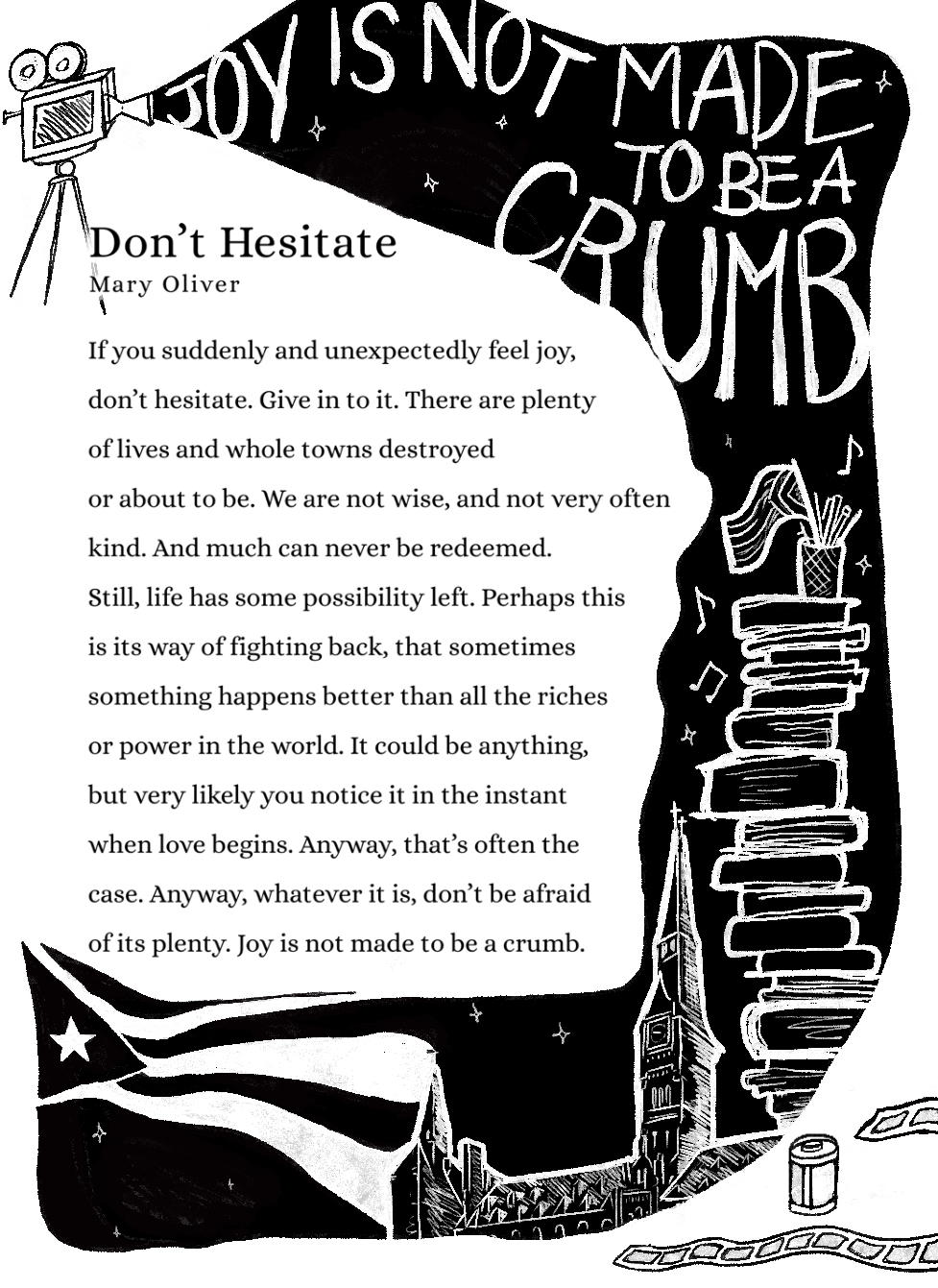


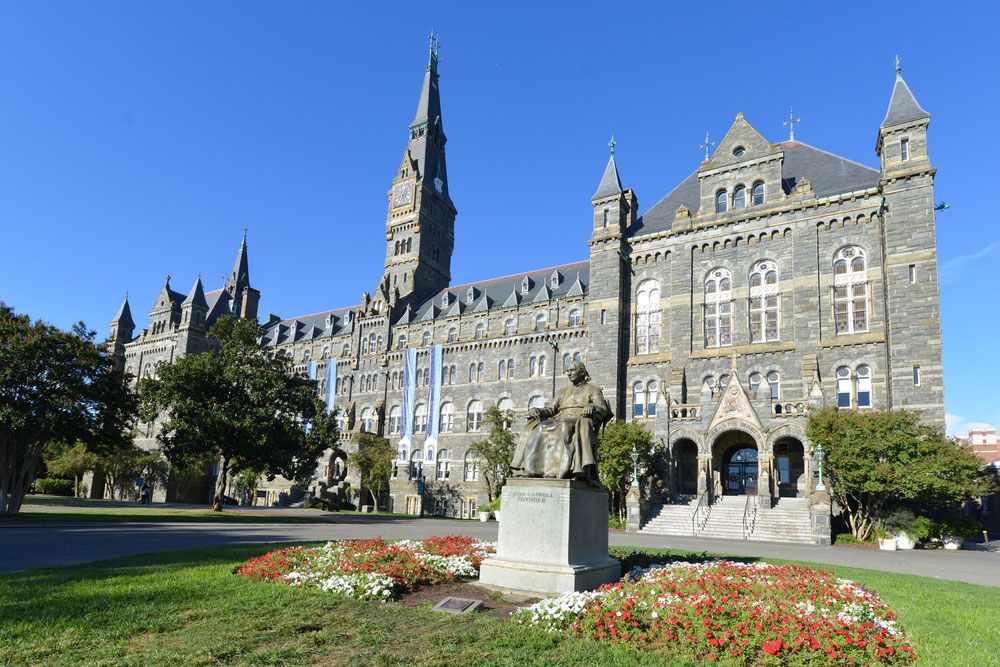
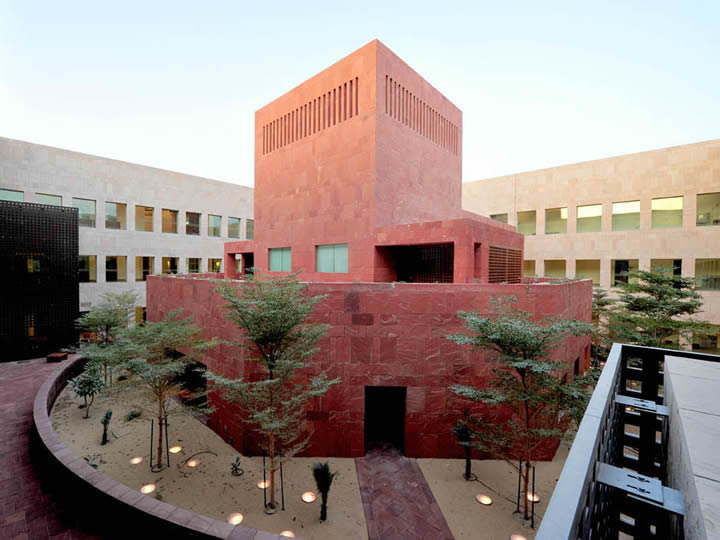

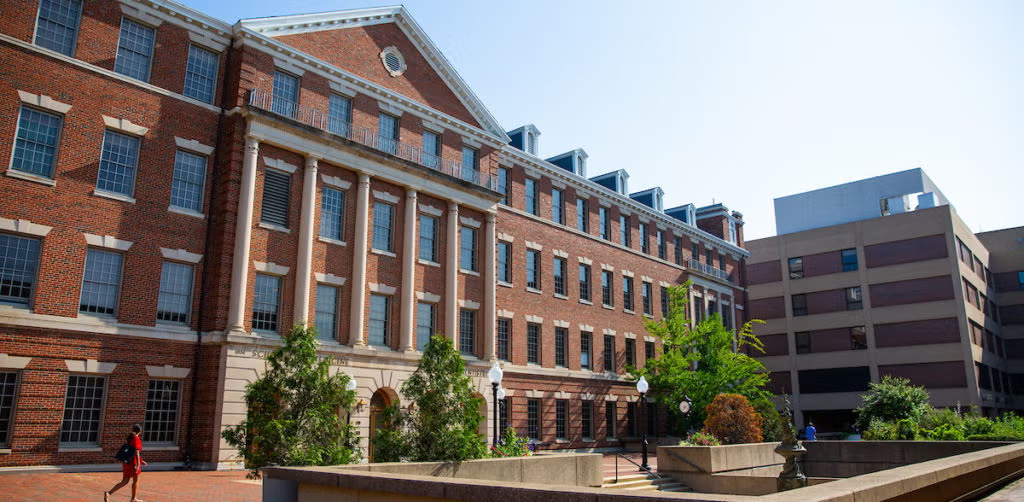


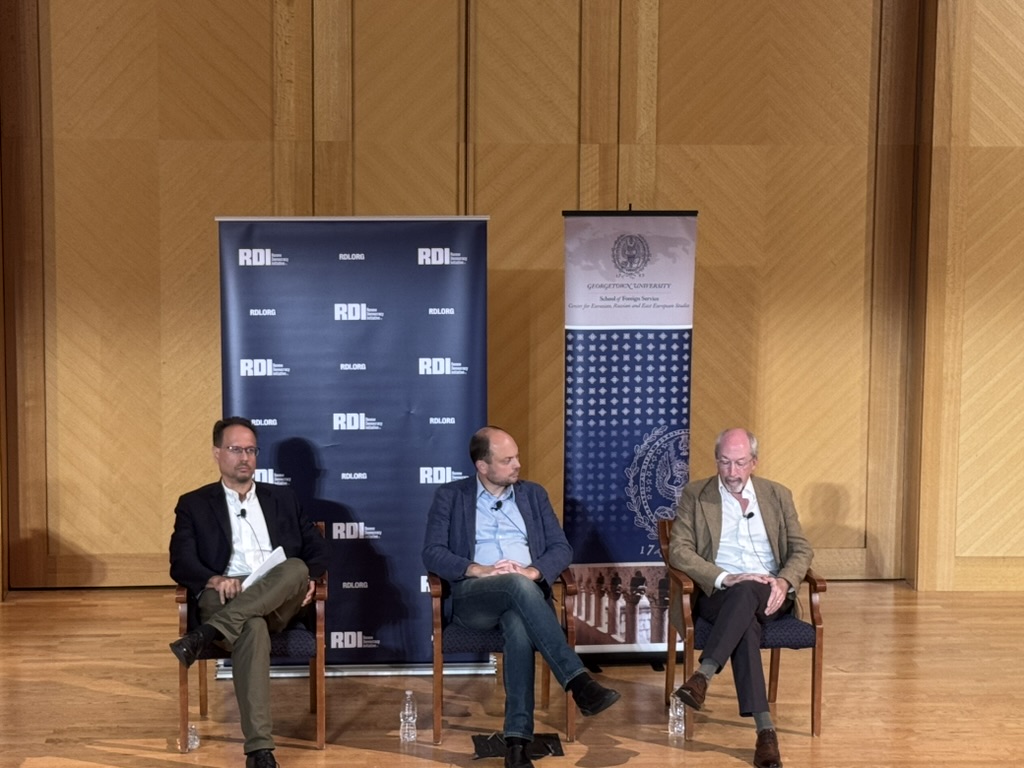
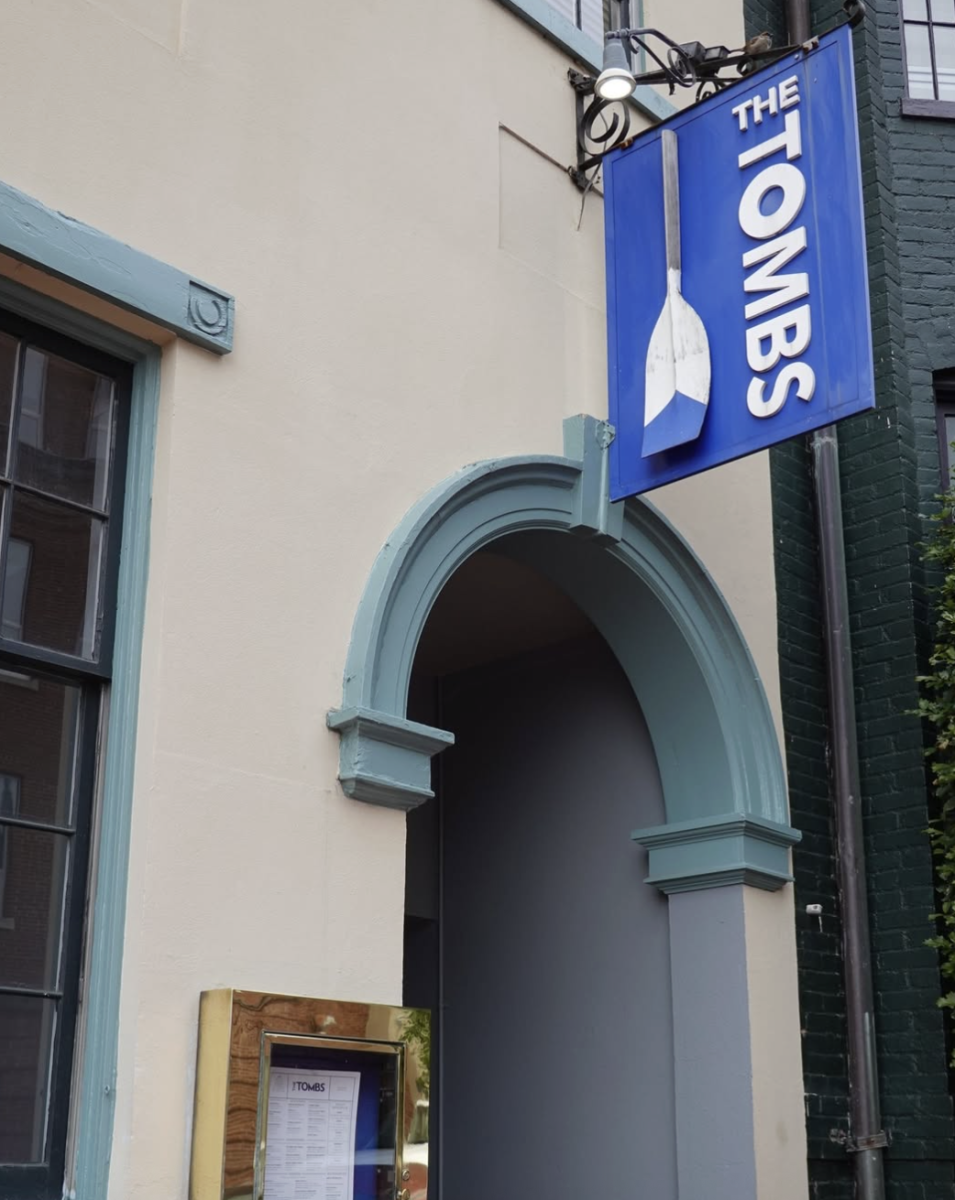
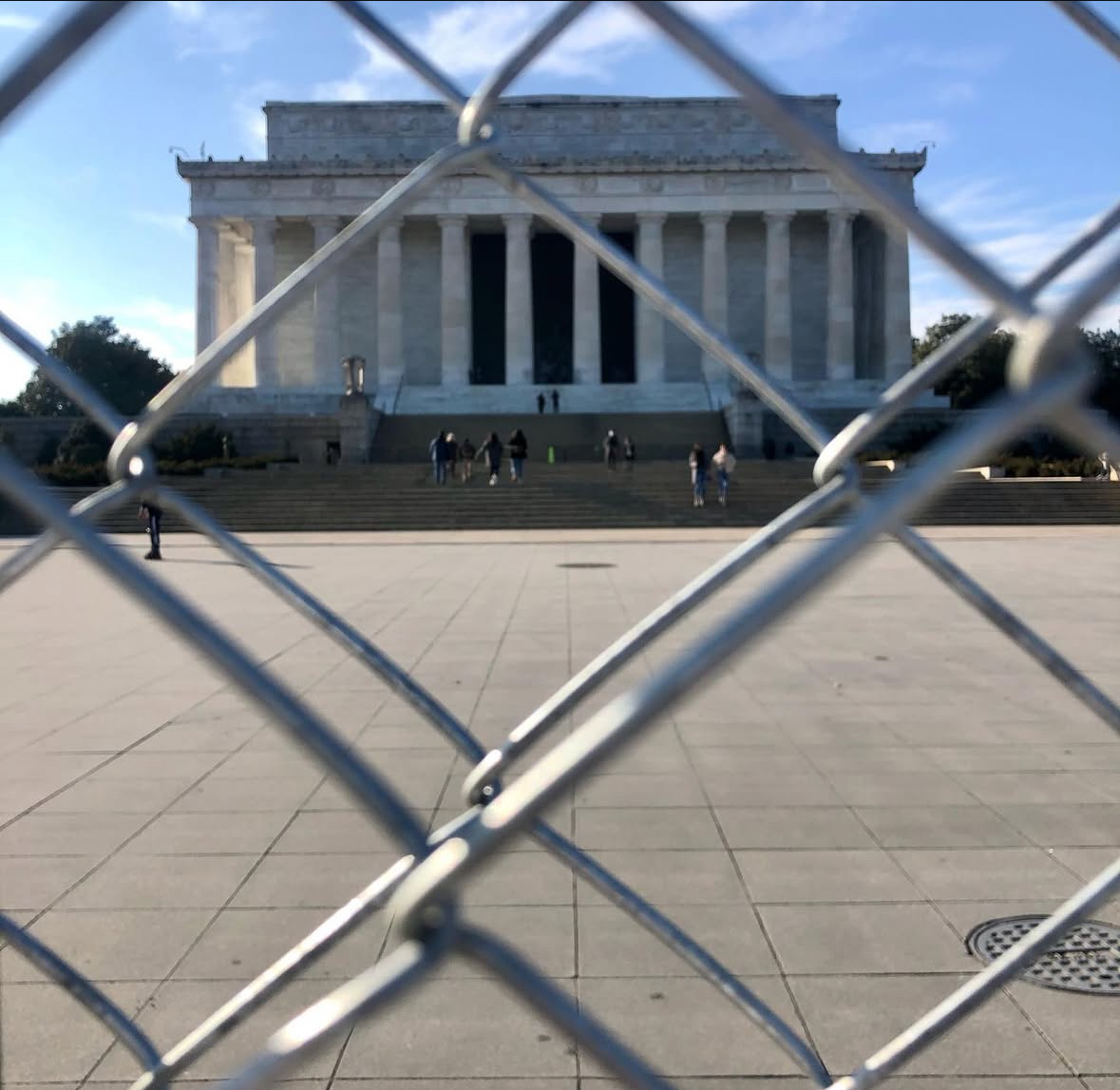



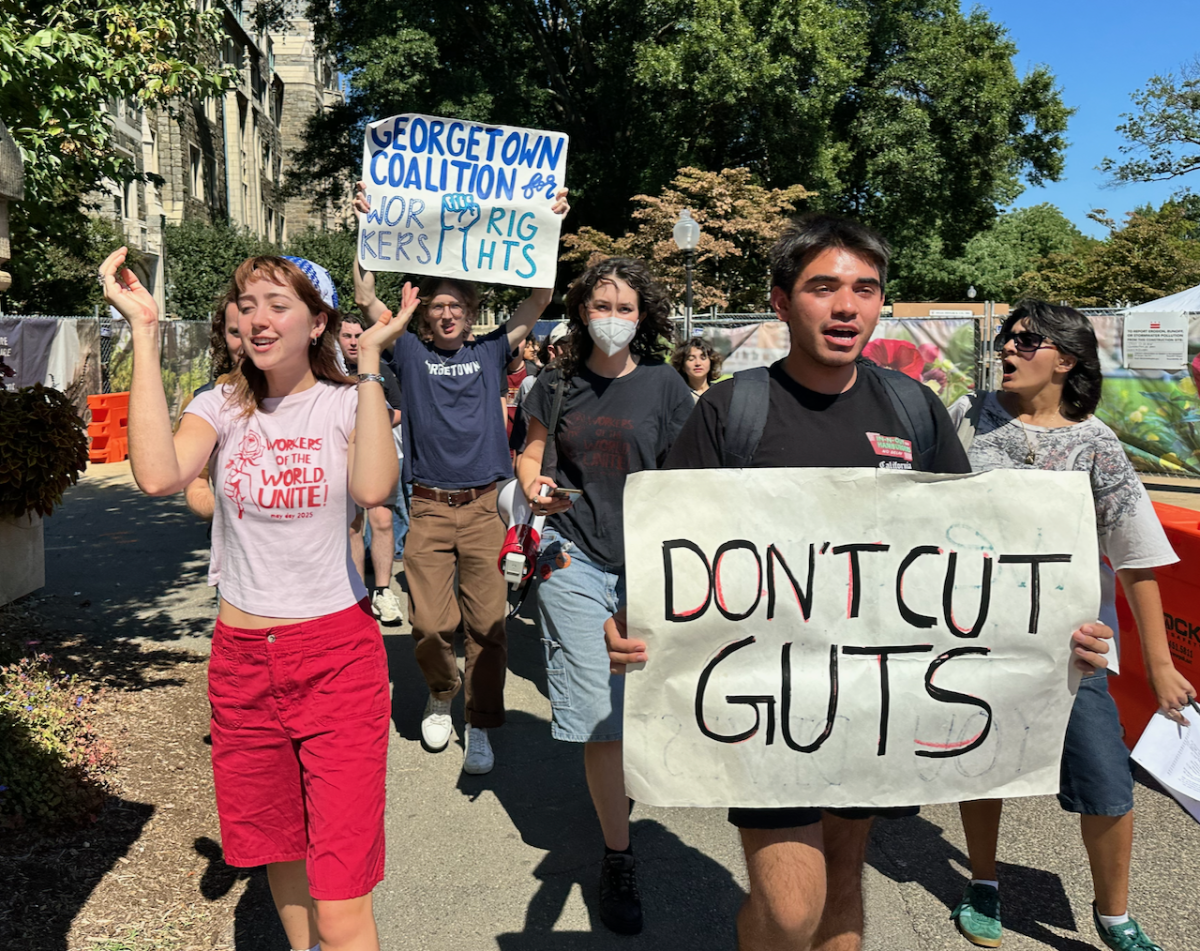
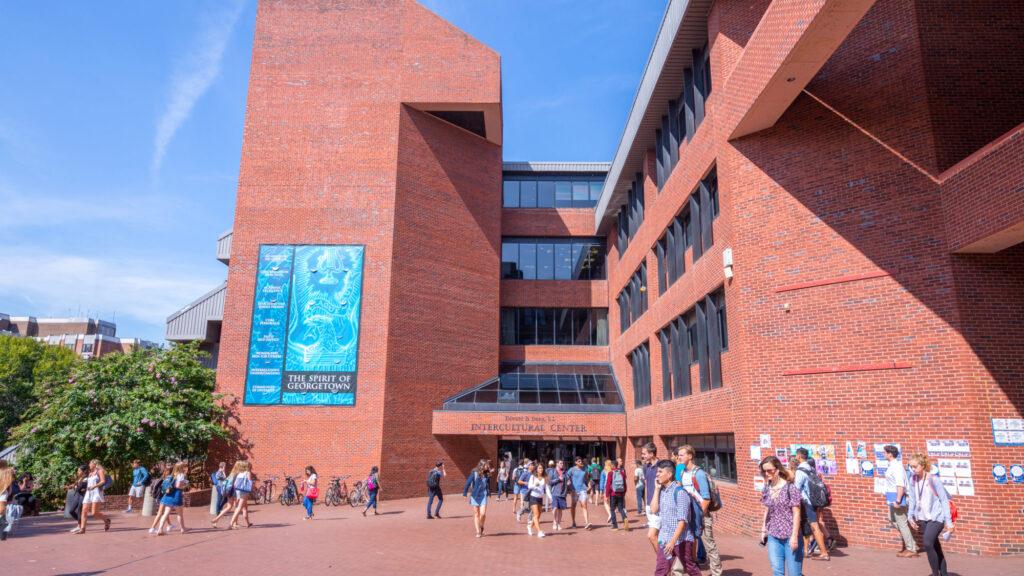
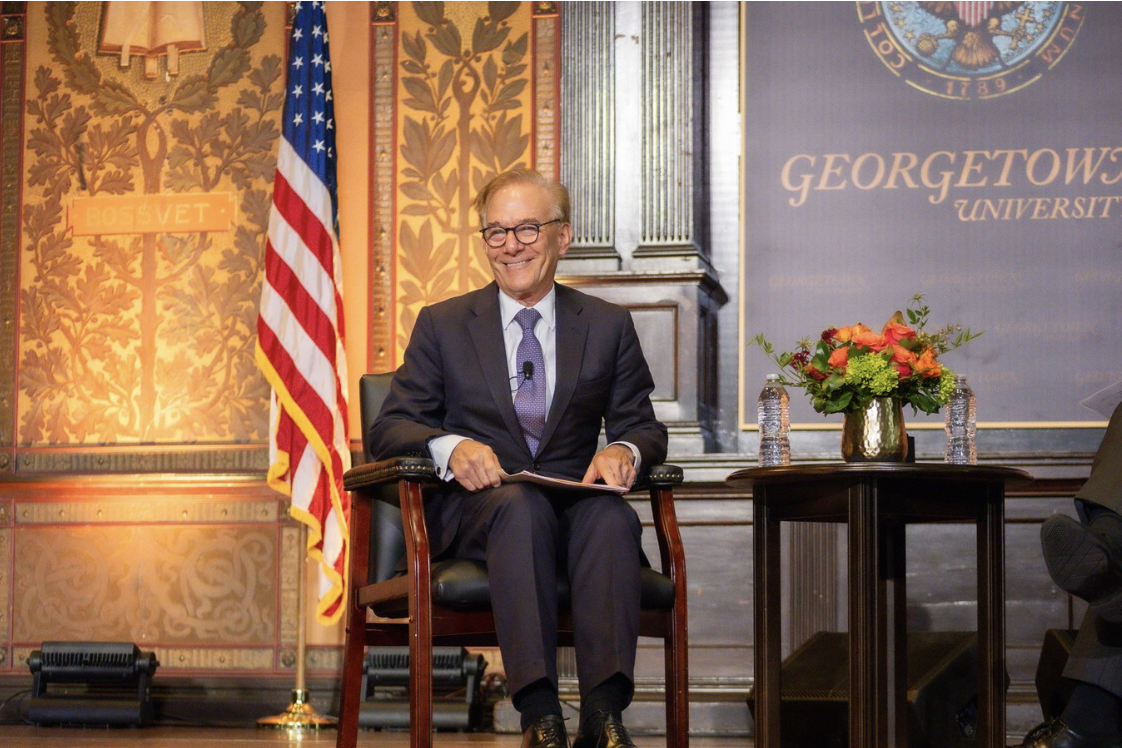
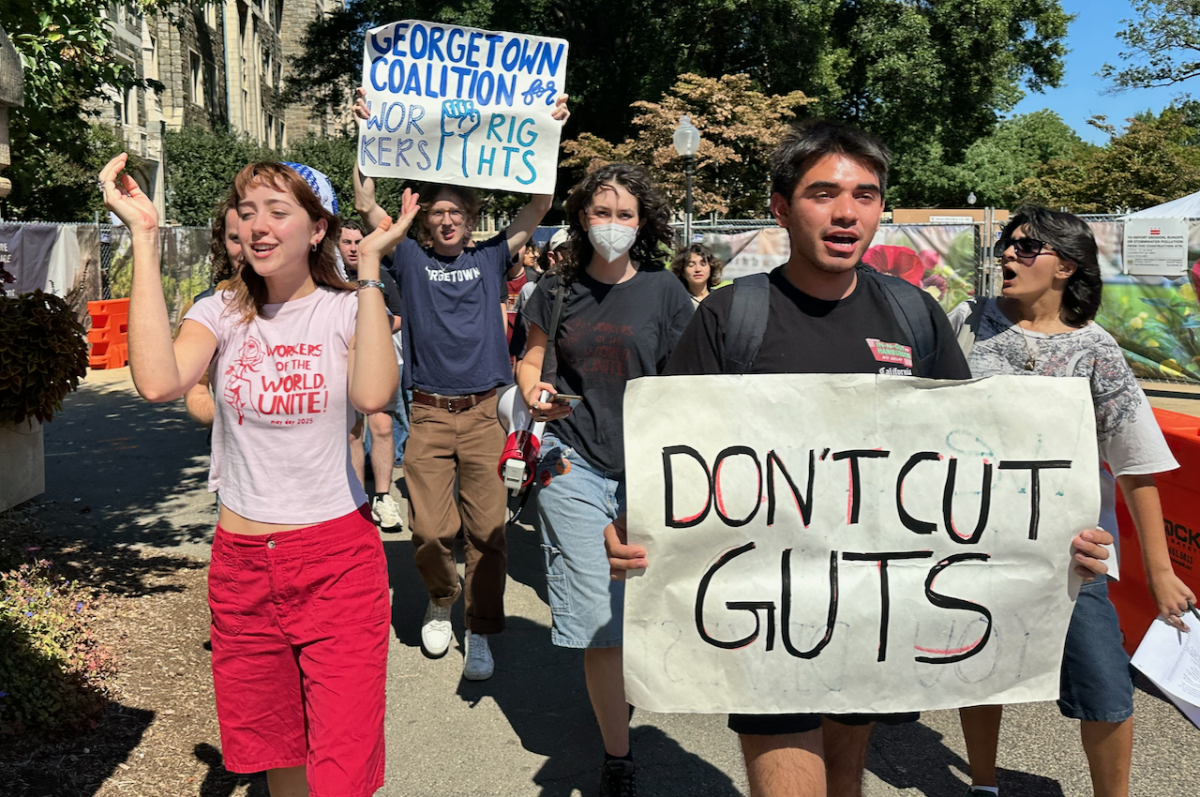




Robert Aguirre • Sep 20, 2025 at 6:58 am
A lovely person and a great teacher and scholar. May his memory be a blessing. My condolences to his family, friends, colleagues, and students.